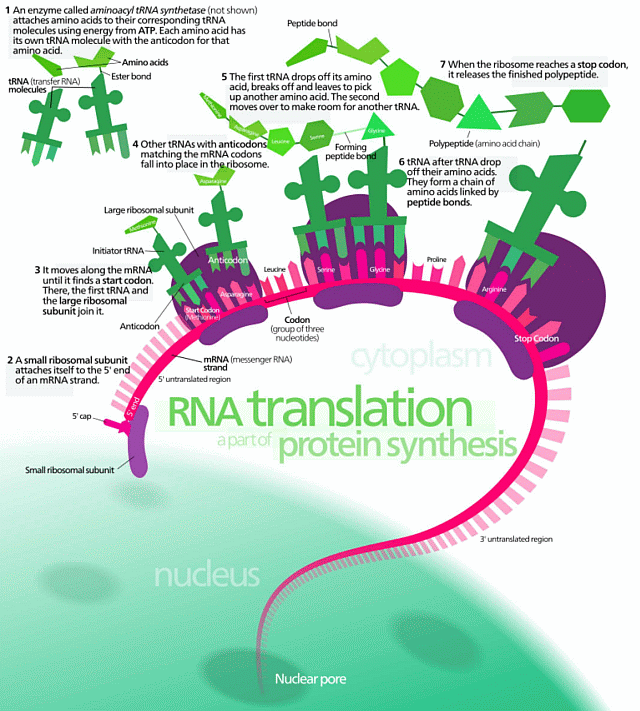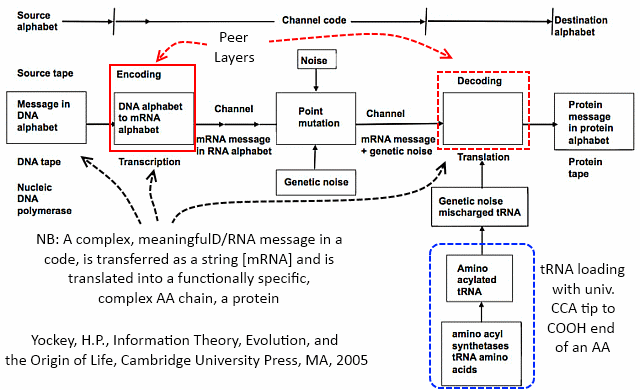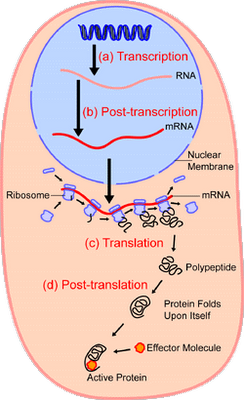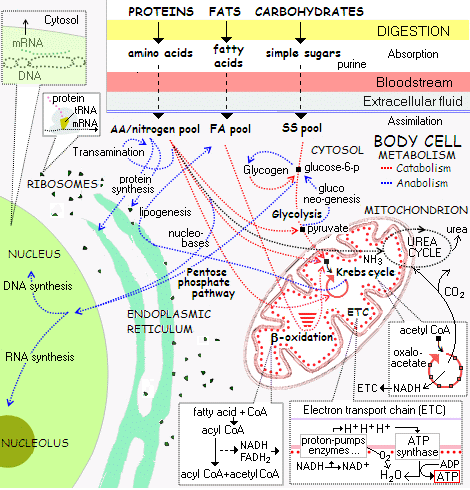UD participant Upright Biped (of Complexity Cafe U/D: Biosemiosis) has commented recently in the what is knowledge thread, replying to frequent objector CR by summarising key aspects of the role of information systems in observed cell based life. His remarks are well worth headlining:
__________________
UB, 195: >>We can start by summarizing the core physical requirements of the system we are trying to explain: an autonomous self-replicator with open-ended potential (i.e. it can describe itself or any variation of itself).
The system requires:
1) a sequence of representations in a medium of information.
2) a set of physical constraints to establish what is being represented.
3) a system of discontinuous association between representations and referents, based on spatial orientation (i.e. a reading-frame code)
4) functional coordination (semantic closure) between two sets of sequences; the first set establishes the constraints that are necessary to interpret the representations, and the second set establishes a system whereby the representations and their constraints are brought together in the specify way required to produce a functioning end product – an autonomous self-replicator. Coordination is required because changes to the first set affect the second set.
Did you follow all that? You have to have a medium of information, representations, constraints, discontinuous association, a reading-frame code, and semantic closure in order to create a material system capable of Darwinian evolution. Each interdependent piece has a physical manifestation, and each brings a critical capacity to the system.
So … when you remove the translation machinery in order to simplify the system (to meet your ideological requirements), you remove the capacity of the system to specify objects among alternatives. You remove the physical capacities that are enabled only by having a medium of information organized within a system (i.e. RNA, for instance, is only a medium of information when it is organized as such, otherwise it’s just another molecule with its particular characteristics, determined by energy). In other words, you remove the very system that enables Darwinian evolution to exist, not to mention removing the very thing that enables biological organization in the first place.
Thus, what are you then left with? You are left with a system that can only organize itself based upon the energy of the individual and collective components in the system (i.e. your “no-design laws”). But, magnetism does not establish a medium of information. Thermodynamics does not create a reading-frame code. Dissipative processes do not coordinate semantic closure among unrelated sequences of symbols. In other words, you have nothing but your prior assumptions.
So now that we have a lay of the land, we can take a look at your claims:
Claim #1: Darwinian evolution is the source of the translation apparatus.
This claim is dead on arrival. The only way to resuscitate this claim is through a) massive equivocation of terms, and b) abject denial of molecular science. In other words, it’s right up your alley.
Claim #2: Only high fidelity replication requires translation.
You need to get your head straight. The simpler system you are talking about is not a semiotic system that merely operates with poor fidelity, it is a non-semiotic system that operates by pure dynamics. It doesn’t establish a medium of information; it cannot specify objects among alternatives, and it obviously cannot achieve semantic closure. In an effort to save your theory, you can certainly start to equivocate on terms like “specify” and “medium of information”, but at the end of the day, the only thing that such an entity can lead to (be the source of) will be determined solely by dynamics. Thus, I asked you the clarifying question: Does the non-semiotic system you assume preceded and created the semiotic system have to specify the semiotic system that follows it? If so, then how does it do that?
You have no response to that question that doesn’t also include repeating your claim and assuming its true.
The bottom line is that there is no conceivable environment at the origin of life on Earth that inanimate matter operating under physical law (your “no-design laws” for crying out loud) where purely dynamic properties such as electromagnetism, hydrophobicity, etc., will push and pull and cajole molecules and constituents into simultaneously creating a sequence of symbolic representations, interpretive constraints, a system of discontinuous association, a reading frame code, and semantic closure. In short, the issues surrounding the origin of a semiosis in the cell are not about “fidelity”, they are about organization instead.>>
__________________
Again, food for thought. END
PS: As debate points have been raised, here is a summary of protein synthesis, from Wiki:

This should be seen i/l/o this more complete overview of the whole synthesis:
Here is Yockey’s info-system view:

And, here is a summary of the wider metabolism set:

